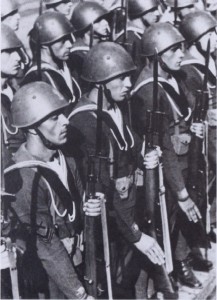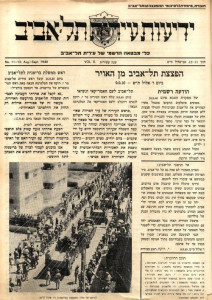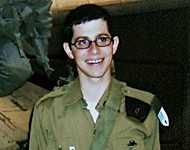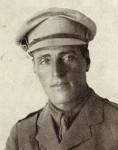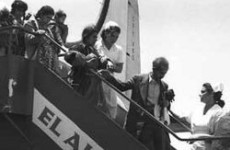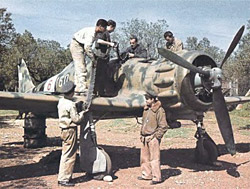
In 1940 and 1941 there were a number of air-raids on Haifa and Tel-Aviv by the Italian air-force. On September, 1940, a residential neighborhood in Tel Aviv was targeted by the Italian planes, resulting in the deaths of over a hundred people.
In June 1940, with German victory imminent, Italy declared war on Britain and France. Shortly afterwards, France surrendered, and Britain remained alone in the struggle against Germany and Italy. The Italians concentrated their forces in North Africa and made their way to Egypt. The proximity of the Italians to Palestine enabled them to dispatch aircraft to bomb strategic targets.
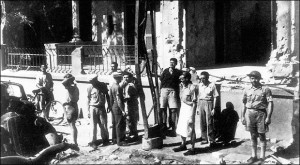
A month after Italy entered the war, Haifa was bombed, with the aim of putting the refineries and port out of action. Dozens of people were killed in the raid and many others were injured. Strict blackout was imposed on all towns and settlements, and civil defense measures were adopted against the air raids.
These measures proved useless, however, when Tel Aviv was bombed in full daylight. I was playing with friends near home when we suddenly heard loud explosions. Before we could grasp what was happening, the Italian planes were on their way back to base. The entire bombardment had lasted only a few seconds, catching us unaware and leaving us no time to get to the shelter in the center of the neighborhood.
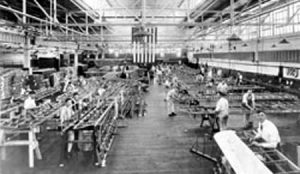
From conversations around us, we understood that many people had been injured. I immediately ran home to report that I was safe and then went to see what had happened. The Nordiya quarter (where the Dizengoff Center now stands) had been heavily hit; the huts were in ruins, and among the debris lay the dead and injured. Here and there a fire had broken out. Damaged cars and wagons blocked the road itself. In the middle of the road lay a dead horse, hit while still harnessed to a wagon. I gazed at the horror around me. Of what strategic importance could this residential area have been?
A mass funeral was held for the 107 men and women who had died in the bombardment. The funeral procession left from the Balfour school and I still recall the coffins lying in rows on the trucks en route to the Nahlat Yitzhak cemetery. The lesson learned from this terrible raid was that our early-warning systems had to be improved to enable us to take shelter in good time. (by Prof. Yehuda Lapidot, from Irgun website)
